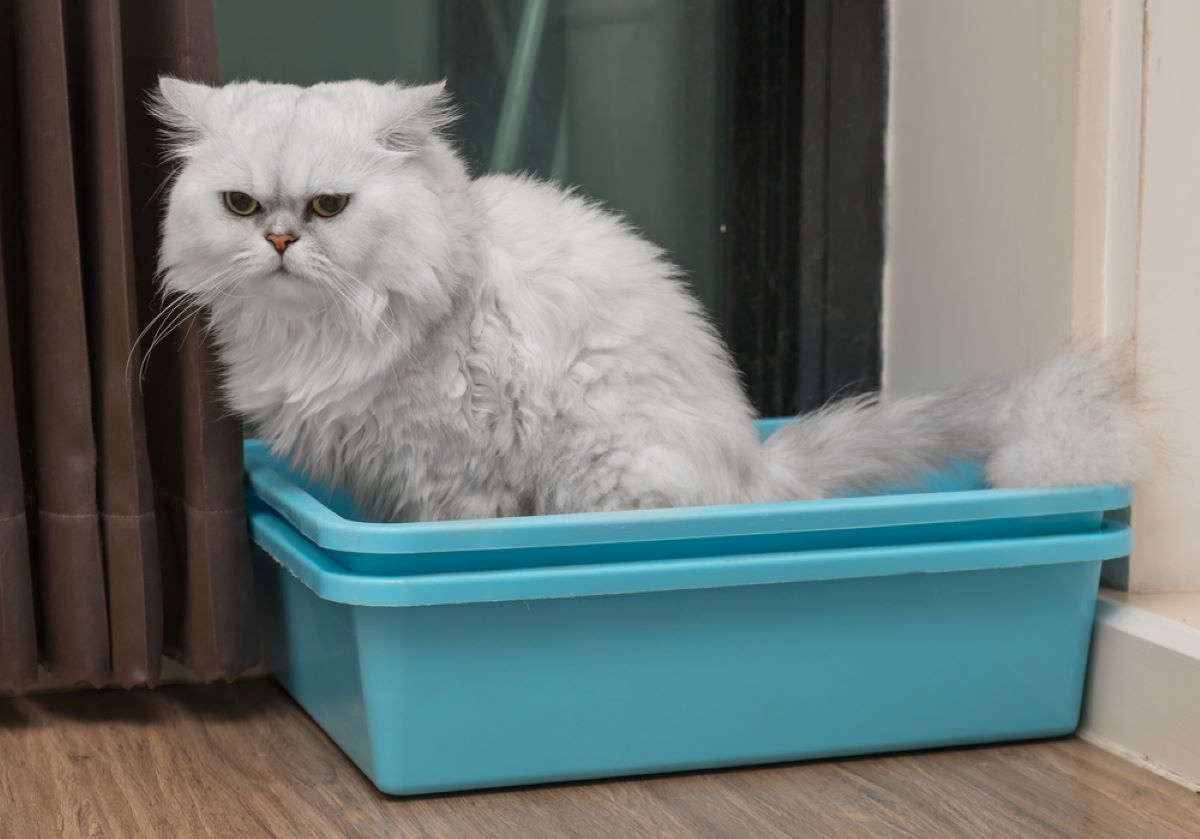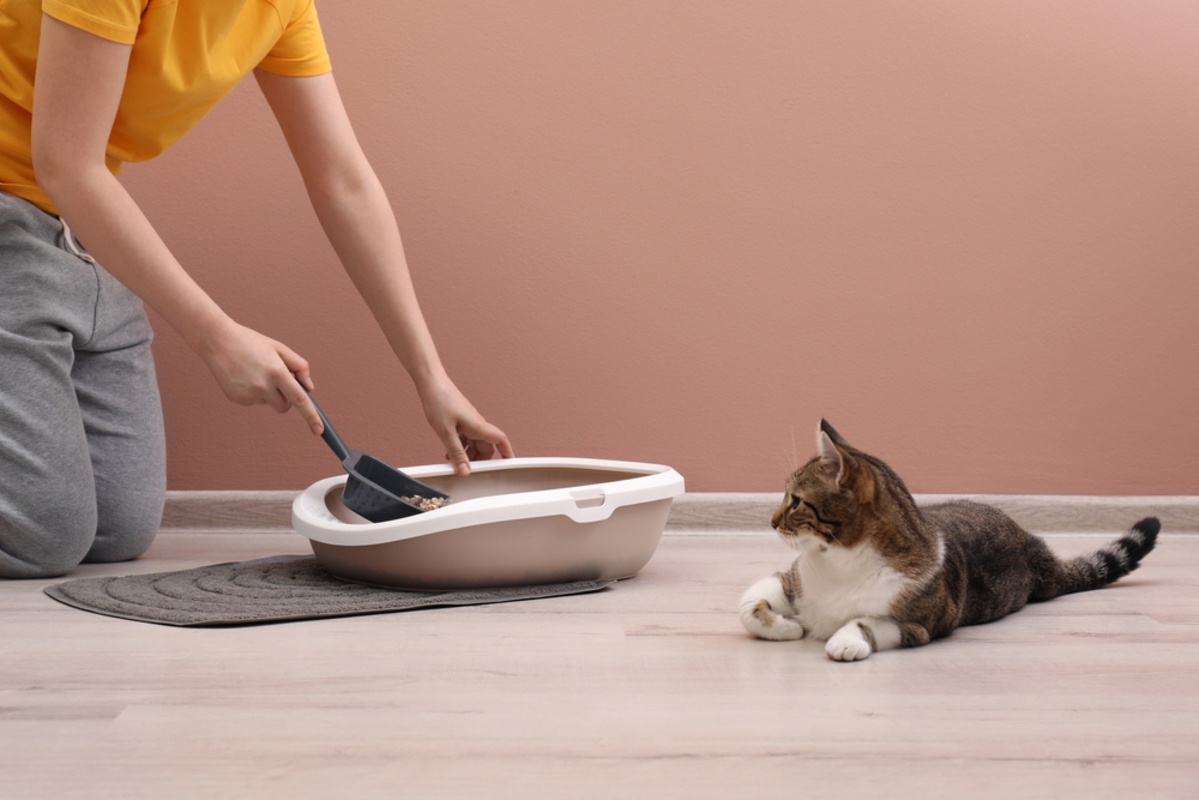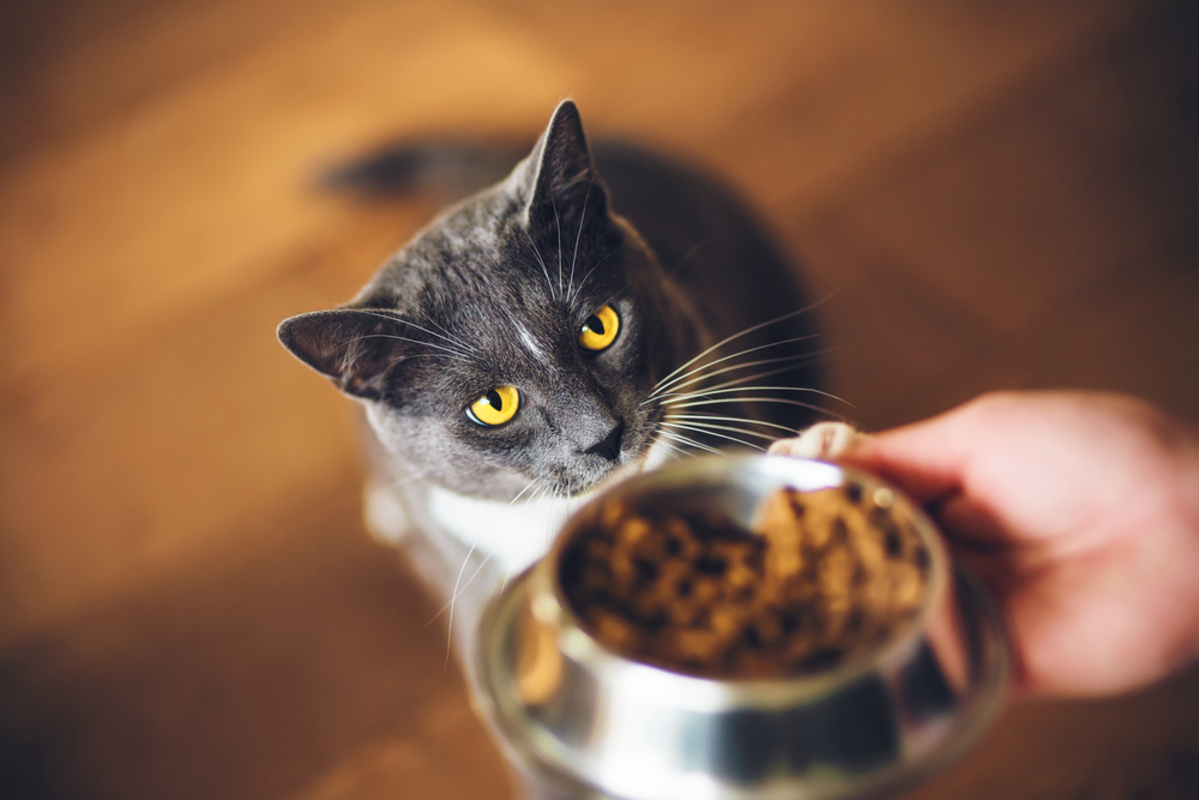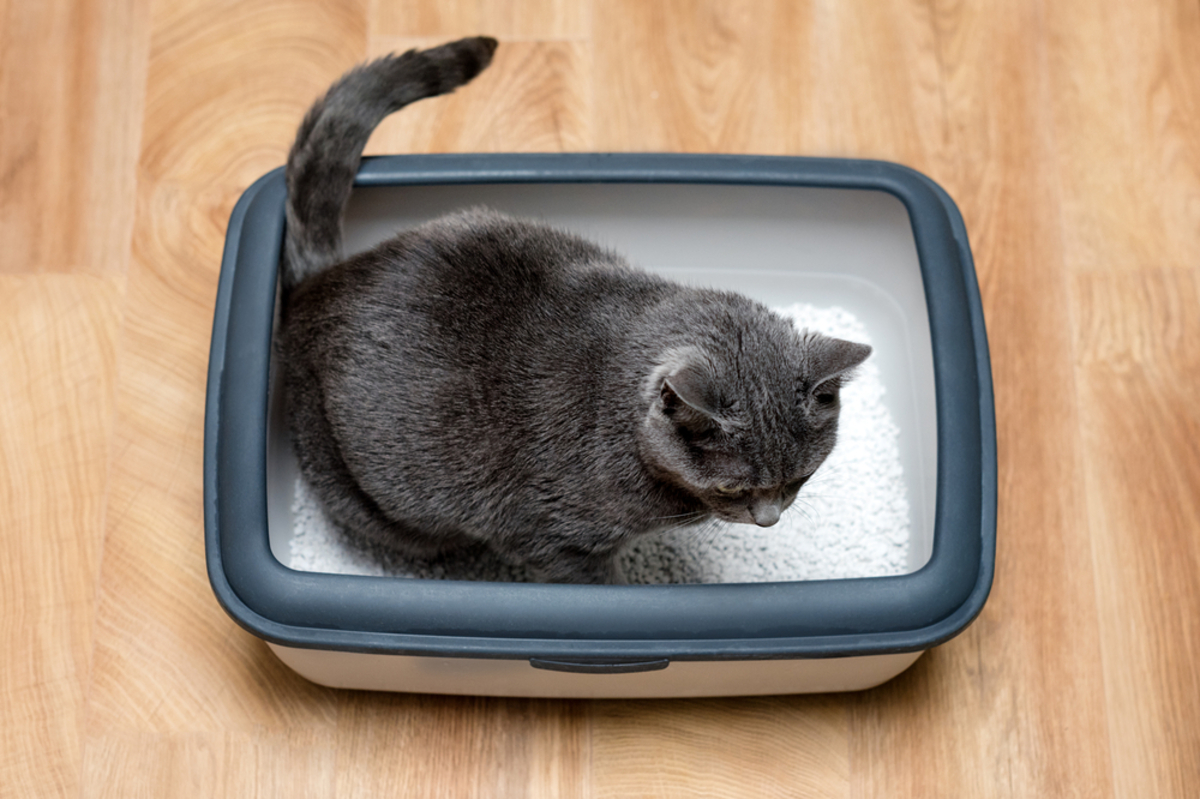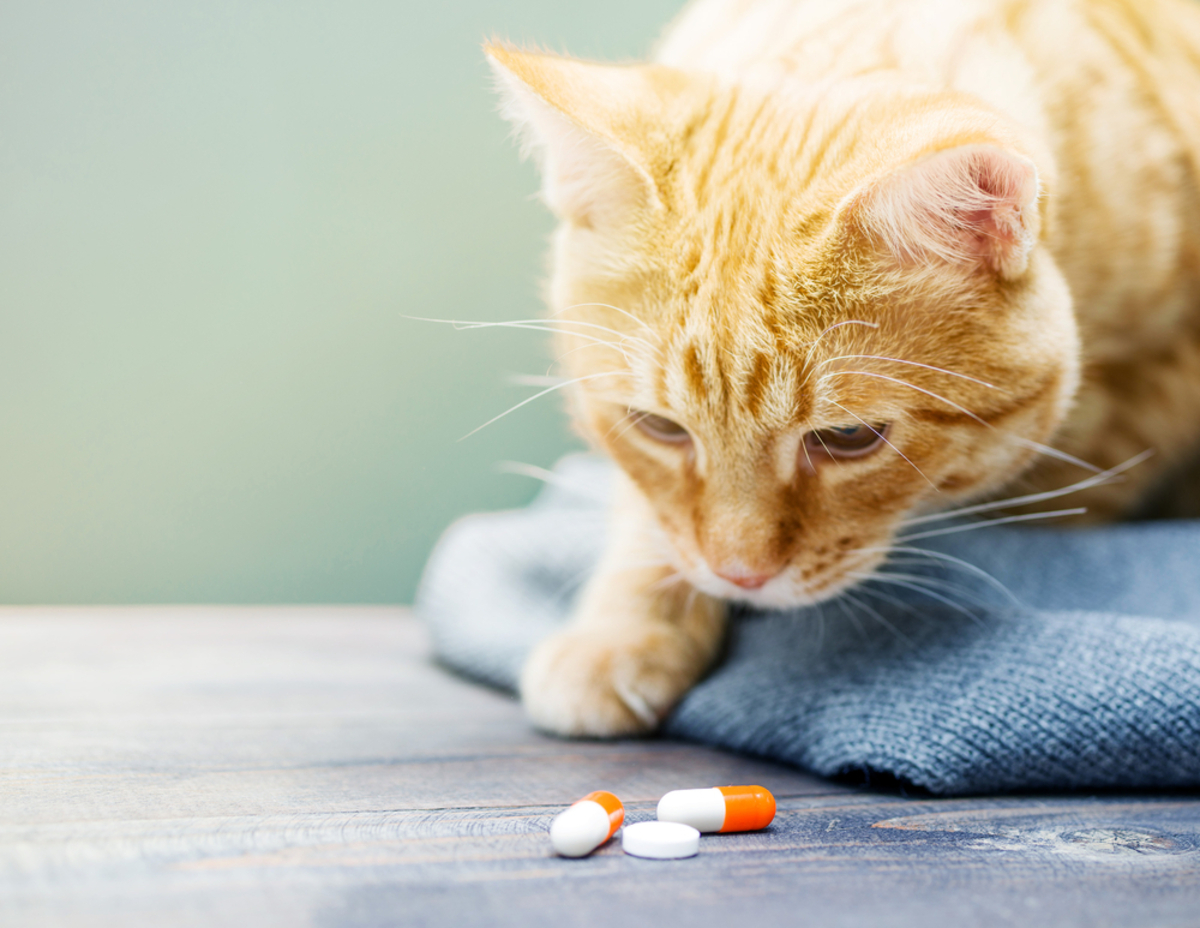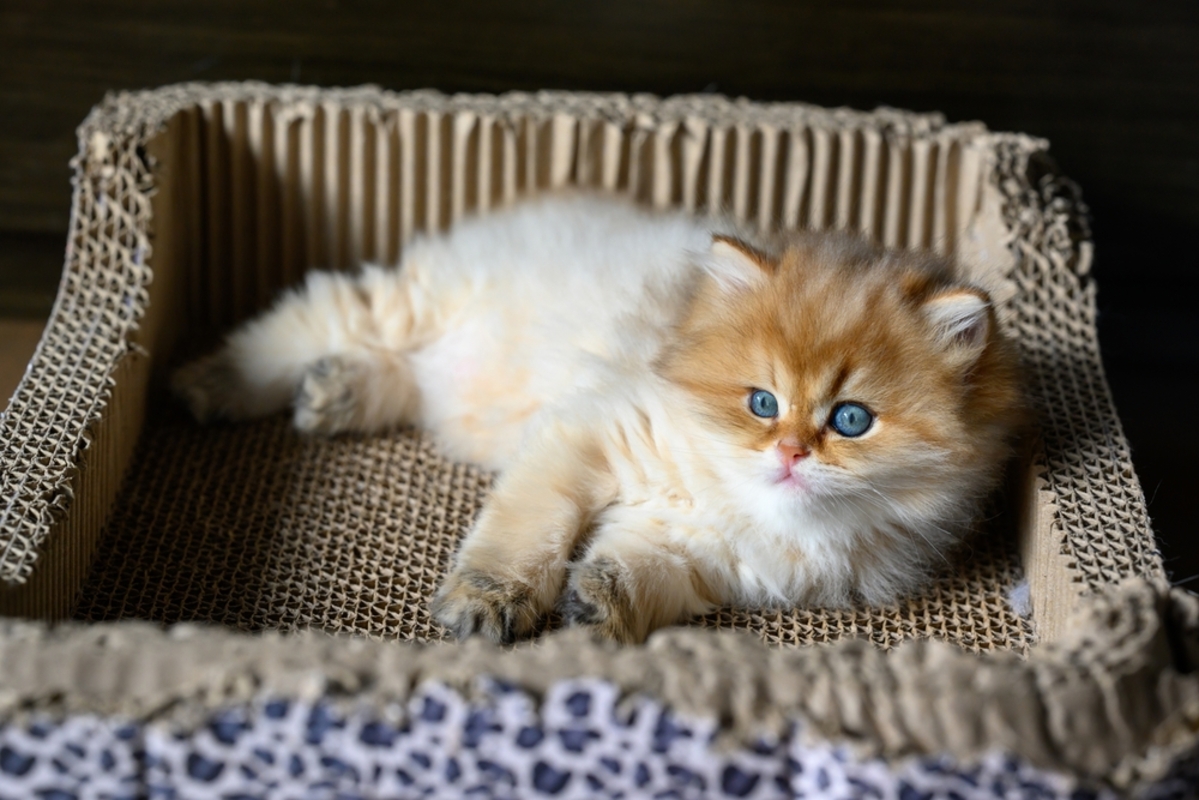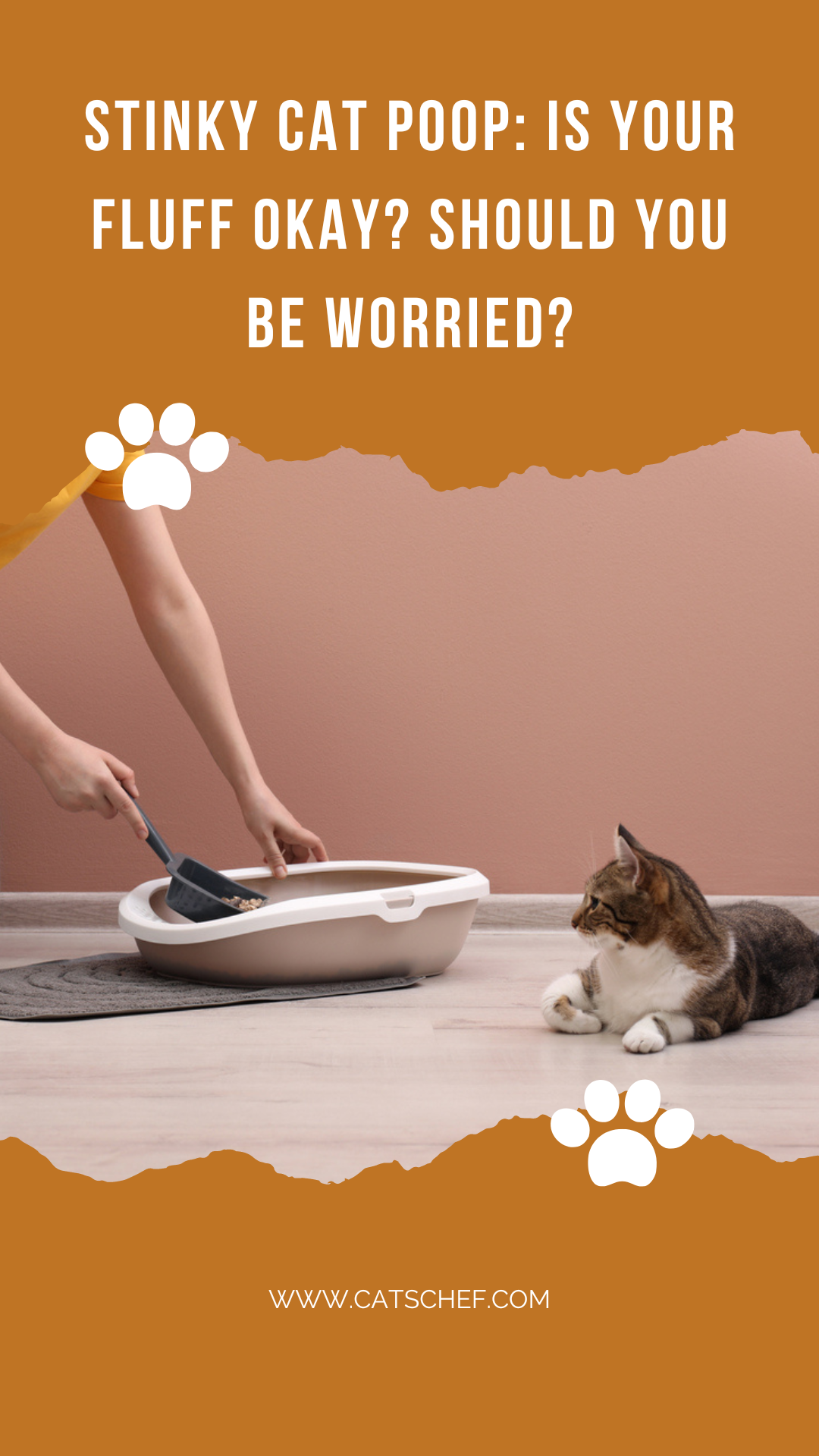📖 Table of Content:
No one said having a cat means your apartment will smell like roses. Her litter box can have a pretty bad scent, but every cat parent gets used to that. Still, something got you reading about stinky cat poop, and I assume you’ve noticed some changes in your feline’s feces.
It’s good that you’ve decided to learn more about this issue. Although it’s definitely one of the worst things a cat parent has to deal with on a daily basis, it could be an indicator of an underlying health condition. Any change in your cat’s bodily functions shouldn’t be ignored.
Stinky cat poop can be pretty unbearable, and we’re always glad our feline friends have that wonderful instinct to bury their feces. More often than not, this is enough to cover the smell until you change her litter, but what to do when it’s not?
There must have been a time when you thought “Why does my kitty’s poop smell this bad?!” Well, you no longer have to wonder, as I’m here to give you 7 possible reasons behind stinky cat poop. If any of these sound familiar, you should definitely pay a visit to the vet.
What is healthy cat poop like?
Before we get to all the possible reasons why your cat’s poop has been particularly stinky lately, let’s learn what her healthy feces should be like. Don’t get me wrong, your cat’s poop will smell bad even when she’s healthy, but not bad enough that your whole house begins to stink.
So yes, it’s normal that your cat’s poop smells, but it should subside after a few minutes, or right after she buries it. If you can’t tell by the smell, pay attention to how it looks. I know, no one wants to analyze their cat’s litter, but sometimes you really should.
Healthy cat poop is usually 1 inch or longer, and it doesn’t break when you pick it up. When using the scoop, you should notice a small amount of residue, but it shouldn’t stick. Another indicator that your kitty is healthy and stress-free is the fact that she poops directly into her litter box.
If this doesn’t describe the poop you’ve found in your kitty’s box this morning, then it could be a sign that your cat is having some issues you’re not aware of.
Stinky cat poop: 7 possible reasons why it happens
So, what could be the reason behind stinky cat poop? Well, there could be many! Although I’ll list the 7 most common ones, I don’t recommend you rely solely on this list. Every cat is different, and so are their bodies and digestive systems.
If you suspect there’s something wrong with your kitty, I highly advise you to pay a visit to the vet. Describe the things you’ve noticed and they’ll examine your fluff. That way, you’ll be able to get a proper diagnosis and a treatment plan that will make your fluff go back to her healthy self.
Before that, however, it’s good to know what to expect. Here are some of the most common reasons behind this smelly change in your kitty’s litter.
1. You need to change her diet
I know, I know… Your feline queen is a picky eater. You can’t seem to find the food she enjoys so, once you finally do, you stick to it no matter what. Well, I hate to break it to you, but her diet might be the reason behind her stinky poops…
Cats are not much different than us when it comes to food sensitivities. They can be sensitive to some vitamins, grains, or even some fillers that make their snack harder to digest. All of this could cause her poop to stink up your house.
But, how do you know her diet is the reason? Think about these things:
- Have you introduced any new food to her diet? If the answer is yes, try eliminating it. Instead, feed her high-quality cat food that’s rich in vitamins and fiber.
- Was she out hunting lately? In case your little pawdator has been out hunting for her food, it could be that she ate some rodents or bugs that cause bad odor. Simply wait until it’s out of her system and her poop should be back to normal.
2. She might have a bacterial infection
Another common reason behind stinky cat poop is bacterial infections. This is frequent among kitties who like to roam outside and hunt for their food. There are other symptoms of bacterial infections that you should look for:
- Vomiting
- Diarrhea
- Nausea
- Fever
- Coughing
Although your cat might have been hunting most of her life, all it takes is one prey that’s infected with salmonella or any other kind of bacteria for your fluff to get infected. If any of these symptoms sound familiar, don’t hesitate to take her to the vet, even if she’s never had a bacterial infection before.
3. She’s dealing with digestive issues
Your fluff doesn’t have to suffer from allergies or food intolerances to have stinky poops. Just like us, some kitties simply have super sensitive stomachs that can lead to diarrhea caused by certain foods.
On top of that, some felines suffer from certain digestive-related conditions, such as maldigestion or malabsorption. This is common among older kitties when their bodies begin struggling to digest food and absorb nutrients. That way, they’re unable to absorb fats, which causes smelly poops.
If you suspect your kitty might be suffering from some kind of a digestive issue, here are some other symptoms you should look out for:
- Fever
- Weight loss
- Vomiting
- Decreased appetite
- Constipation
- Pain
If she has even one of the symptoms mentioned above, it’s time to take your dear furbaby to the vet. Don’t try to give your own diagnosis. Professionals will run all the necessary tests to identify the condition and come up with the right treatment plan for your fluff.
4. Medications and hormonal changes
If you’ve been giving your cat any kind of medication, it’s normal that her feces might have changed. In case you’re giving her any kind of vitamins or supplements, it could also be the reason.
This doesn’t mean she’s not reacting well to her meds, but you still shouldn’t ignore it. Don’t wait for it to pass and talk to her vet. If stinky cat poop is one of the common side effects, then you have nothing to worry about.
Sometimes, medication can do more harm than good. Vets usually warn you about all the side effects before you start giving new medicine to your kitty, and diarrhea is frequently one of them. Still, talk to your vet and, if it’s necessary, they’ll find the medication that will be easier for your fluff’s body.
5. Anal gland infections
Felines have anal glands on the inside of their anus, and they’re filled with a liquid that has a strong smell. If they ever get infected, the liquid starts smelling even worse, which affects the poop as well.
Infected anal glands are very painful for cats. Because of that, you should take yours to the vet immediately if you notice any of these changes in your feline:
- Your cat showing signs of pain in the area of the anus.
- Scooting or dragging her back along the ground.
- Bloody discharge on the side of the anus.
- A swollen anus.
- Excessive licking of the area under her tail.
You can’t help her on your own, no matter how badly you wish you could. Her vet will drain her glands and clean the infected area. In some cases, they place a drain so that the liquids from the wound can pass until it’s completely healed.
6. She might be dealing with parasites
Stinky cat poop is often caused by intestinal parasites, no matter how old the kitty is. There are many ways in which cats can catch parasites, while kittens often get them from their mothers.
Once they’re inside the cat, worm eggs hatch and reproduce in her intestines. Unfortunately, this condition can be fatal if left untreated.
You probably won’t know your cat has been infected by parasites until she starts showing signs. Besides smelly poops, here are some other signs you should look for:
- She’s been losing weight, even though her appetite seems to be increasing.
- Her coat has changed and she started losing hair.
- Dirty ears and scratching.
- Anorexia.
- She has red, itchy, and irritated skin.
7. Consider changing her litter
Sometimes, your cat’s poop might smell bad simply because of your poor litter choice. If you’d like to avoid this (and most of us do), choose the cat litter that’s labeled as odor-controlling or unscented.
Although it can be pretty expensive, high-quality litter will be your best friend. There are many options on the market, so try out different ones before you find the one that helps you keep your house clean and fresh.
Don’t forget to watch your cat’s behavior, too. If she doesn’t like how her litter feels, she might refuse to use it altogether. You know how divas get…
